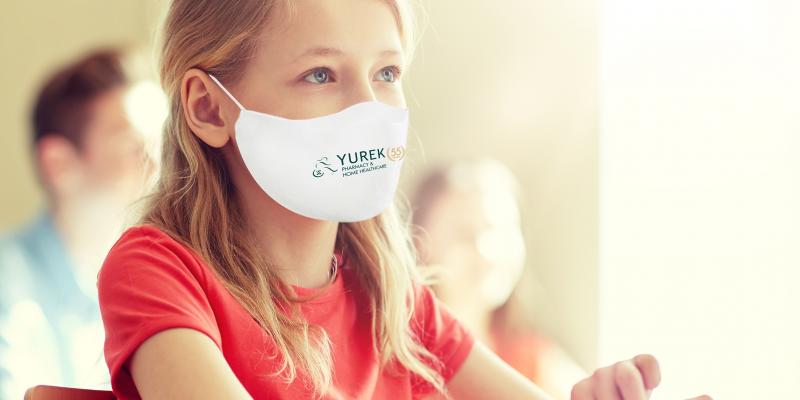Returning to school can be an exciting time but for many children, it can cause anxiety. Leaving parents can be hard for younger children while older kids may be worrying about academic achievement and their social circles. This year, our kids are faced with another stressor: uncertainty and fear surrounding COVID-19. It was during last March break when we were informed that our kids would not be returning to the classroom. That hiatus eventually extended into summer holidays and so children haven’t seen the inside of a class for the past six months! When they return in September, they may fear falling ill themselves or having their loved ones fall ill. They will also return to a routine that is much different as educators try to reduce the spread of the virus. It’s enough to make the most resolute child feel uneasy.
Kids don’t always express feelings of anxiety. In some cases, they may be unable to put their feelings into words. Signs that your child is experiencing anxiety include:
- Sleep disturbances
- Lack of concentration
- Increased defiance or irritability
- Physical symptoms like nausea, headaches or body tension
- Change in eating habits
It is important that we don’t trivialize their feelings. Simply saying, “It’s not that bad,” or, “It will be ok,” does little to eradicate their fears. Similarly, not talking about it may leave them with more questions. Instead, validate their emotions and let them know what they’re experiencing is understandable.
Prepare them by discussing things that are within their control: proper hand washing, physical distancing and wearing a face mask. It can also be a good time to discuss breaches in physical distancing and mask wearing and how to address them. Make sure they are getting adequate sleep, eating healthy food options and staying active. Uncertainty can make us all feel uneasy, so share with your children what we know about how school will look but keep contact with teachers and schools as protocols and procedures change to ensure safety. Explaining changes and listening to their fears can go a long way and possibly alleviate stress. Remind kids to be kind and to be helpful. I’ve said it before, but there is a certain “helper’s high” that comes from good deeds. And above all, take care of yourselves and each other.








